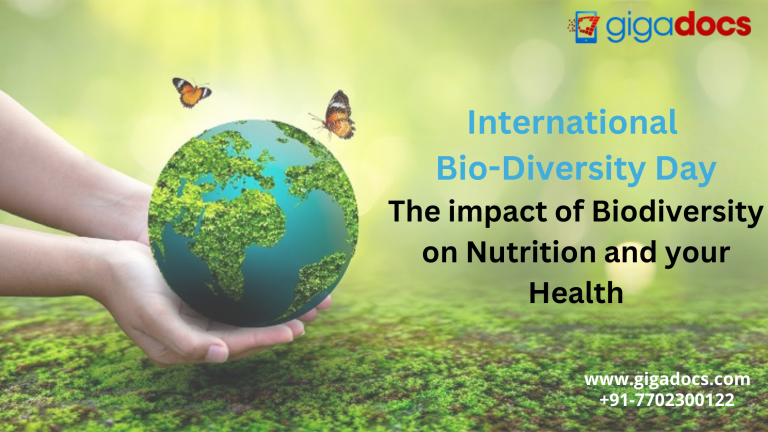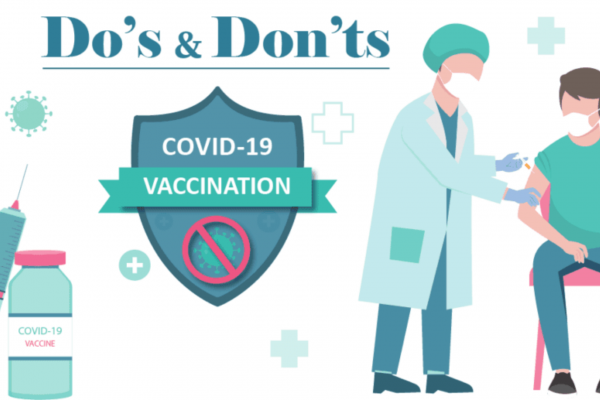A sustainable ecosystem is crucial to human health, which explains why human survival will continue to be disrupted if species losses persist.
Communities cannot function properly without healthy ecosystems. They provide safe access to food, fresh water, and clean air and are a precious source of medications. They also keep the climate stable and lower diseases. However, reports from the convention on biodiversity
(CBD) and the World Health Organization (WHO) explains that biodiversity affects human health, and its loss is happening at a very high rate.
We live in a country that is a megadiverse nation that is home to 10% of all species worldwide. Unfortunately, population growth, climate change, and lax enforcement of environmental laws have put many species in danger of extinction.
Let’s move closer to understanding what biodiversity is, what causes biodiversity loss, why you should protect biodiversity, what biodiversity means for human health, and how biodiversity mitigates climate change on this International Bio-Diversity Day-
What is Biodiversity?
Biodiversity, defined as the variety of species, interactions, and ecosystems, is vanishing faster than at any other time in human history. The destruction of habitat on land, streams, rivers, lakes, and oceans is the main cause of biodiversity loss. By the year 2050, climate change alone is predicted to pose a more significant threat to life on land than habitat loss, endangering the extinction of up to one-fourth of all species on land unless we drastically reduce our use of fossil fuels. Consider climate change which alone poses a serious threat to marine and freshwater species, particularly corals that live in ecosystems that are particularly sensitive to temperature increases.
Why is Biodiversity Important?
Healthy communities depend on functioning ecosystems. They provide clean air, food security, access to medicines, and safe drinking water. Additionally, they support environmental stability and the prevention of disease. However, biodiversity loss is happening at previously unheard-of rates, endangering human health everywhere; for example, the unprecedented temperature fluctuations and floods at previously unheard places- all this is the bane of biodiversity loss.
What Effects Does Biodiversity have on People’s Health?
We all depend upon biodiversity in many ways than one. The products and services provided by diverse ecosystems are ultimately necessary for good human health and sustainable livelihoods.
Human health and well-being increase manifold with every improvement in biodiversity parameters.
With every improvement in biodiversity parameters, Human health, and well-being increases exponentially.
First, for more than one reason, the plant used for medical purposes is greater. For instance, 25% of medications today come from rainforest plants, and 70% of cancer medications are natural or synthetic substances inspired by the natural world.
Second, the low rates of zoonotic diseases have been greatly credited to biodiversity. Although the exact source of the virus that causes COVID-19 is still unknown, 60% of infectious diseases and 70% of newly emerging infectious diseases come from animals and wildlife, respectively. We decrease the size and number of ecosystems due to human activities encroaching on the natural world through deforestation and urbanization. Animals now coexist more closely with humans and other animals, multiplying the danger of zoonotic diseases- the recent cases of Ebola and Monkeypox are good examples from recent memory.
The Impact of Biodiversity on Nutrition
A key factor in health is access to a sufficient supply of nutritious food.
Food production is a function of ecosystems, so there are several levels at which nutrition and biodiversity are intertwined:
- The ecosystem
- The species in the ecosystem
- The genetic variation within species
The availability of micronutrients in the diet can change significantly depending on the nutritional makeup of foods and varieties, cultivars, and breeds of the same food. High levels of biodiversity must be preserved for wholesome local diets with acceptable average nutrient consumption. Biodiversity protects soil productivity over the long term and provides genetic resources for all crops, animals, and marine life harvested for food, thereby significantly impacting human nutrition.
Biodiversity Loss
Losses in biodiversity have a variety of effects on human health. The emergence, transmission, and spread of numerous infectious diseases in humans are significantly influenced by ecosystem disruption and biodiversity loss. The pathogens that cause 60% of human infectious diseases, including COVID and malaria, are zoonotic, which means they enter our bodies after existing in other animals.
The virus that causes HIV/AIDS, which has killed over 40 million people to date, likely made the species jump from chimpanzees butchered for bushmeat in West Central Africa. All in all, there may be 10,000 zoonotic viruses capable of jumping species to us circulating silently in the wild today.
Why Should Biodiversity be protected?
Today is a good time to consider the value of the enormous diversity of life on earth. For many of us, saving species from extinction is a moral obligation that cannot be waivered. However, there are also practical and pressing reasons to devote resources and political will to biodiversity protection, given the realities of today’s rapidly changing world.
- Food security is ensured by Biodiversity.
For food, humans rely on biodiversity. Countless species coexist in intricate ecologies that have developed over millions of years to provide us with the fruits, vegetables, and animal products we use for food. We must allow biodiversity to be addressed if we want to maintain the functioning of the world food system.
- Biodiversity fights diseases
As biodiversity decreases, humans are at an increased risk of contracting zoonotic diseases and losing access to potential medical treatments.
70% of all newly emerging infectious diseases, including Ebola, Zika, influenza, and HIV/Aids, are transmitted by zoonotic agents. This means they transferred from animals to people (and vice versa). Given that there is less and less room for ecosystems to flourish, there are many signs that our exploitation of nature contributed to the COVID-19 pandemic’s outbreak. Urbanization and deforestation increase our proximity to harmful pathogens, which promotes the spread of infections.
- Climate change and Biodiversity loss.
We all agree that healthy ecosystems play a massive role in slowing down climate change. Therefore, combining biodiversity and climate crises simultaneously is a common call to action. The ability of the planet to regulate itself depends on its biodiversity. The natural ability of the earth to control the number of greenhouse gases in the atmosphere is also affected when there is a constant depletion of diverse ecosystems.
It is well known that diverse ecosystems offer massive protection from extreme weather events, which are becoming more frequent due to climate change. Mangroves and coral reefs, for instance, can protect coastal areas from cyclones and tsunamis. But sadly, biodiversity loss is the reason behind the atrocities of nature we face today.
Gigadocs wishes you all a very happy International Bio-Diversity Day and urges our patrons to protect biodiversity and grow more plants for themselves and the betterment of society and the nation. The Gigadocs teleconsultation app is just a download away from booking your health consultation with the best doctors around you.
To book, download the Gigadocs app from-
- IOS App – apple.co/2W2iG4V
- Android App – bit.ly/33AQoRC
To know more e-mail, at info@gigadocs.com




